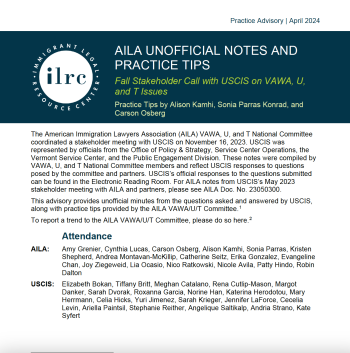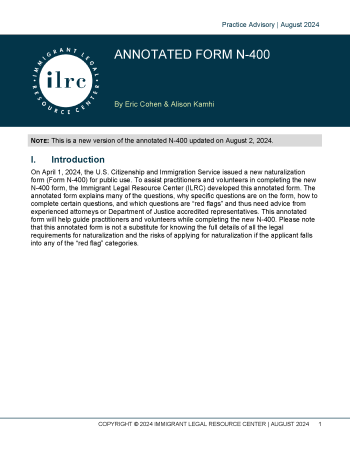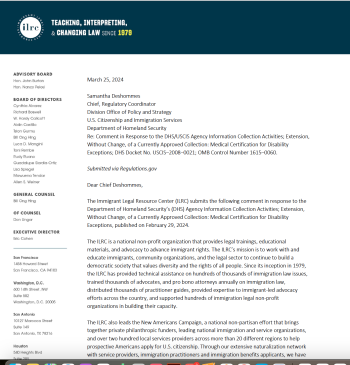Read and share our one-pager in English and Spanish to learn about the top 10 things noncitizen protestors should know before they take to the streets to exercise their rights.
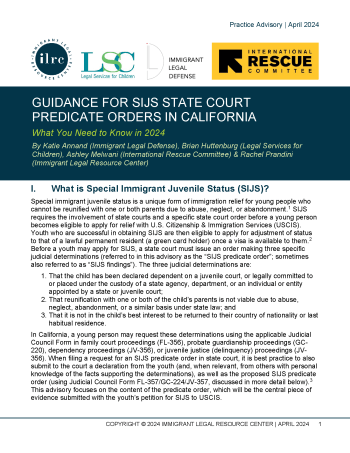
This updated guidance, written with our partners Immigrant Legal Defense (ILD), International Rescue Committee (IRC), and Legal Services for Children (LSC), includes recommendations for what information to include in state court predicate orders for special immigrant juvenile status (SIJS) in California. It incorporates guidance from the 2022 SIJS regulations as well as the USCIS Policy Manual, and includes helpful citations to California law. It also includes sample predicate orders from family, probate, dependency, and delinquency courts.
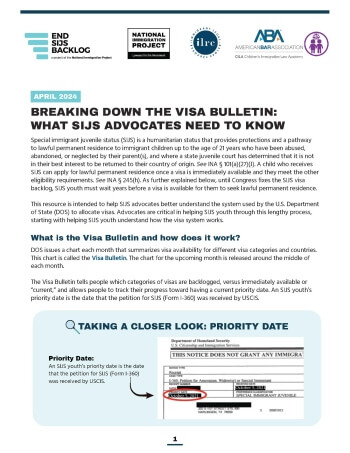
This resource - created in partnership with the End SIJS Backlog Coalition, CILA, and NIPNLG - addresses common questions and myths about the visa bulletin, how to talk to clients about the SIJS backlog, and how both advocates and directly impacted young people can get involved in the Coalition’s work to end the backlog and its harms.
As of April 1, 2024, immigrant survivors of abuse, trafficking, and other crimes can now apply for certain immigration benefits for free. This Community Explainer details which survivor-based benefits are covered by the new fee exemptions, as well as other changes that may reduce financial barriers to accessing immigration benefits.
